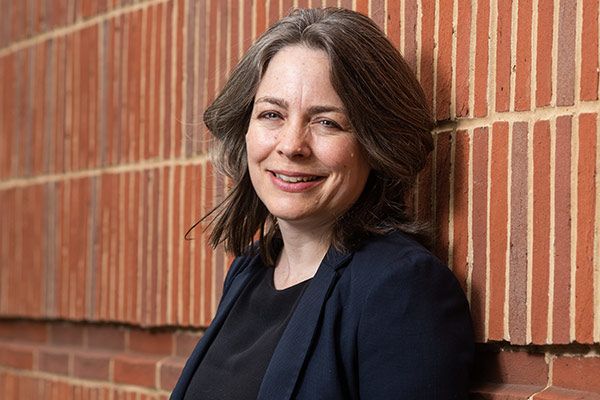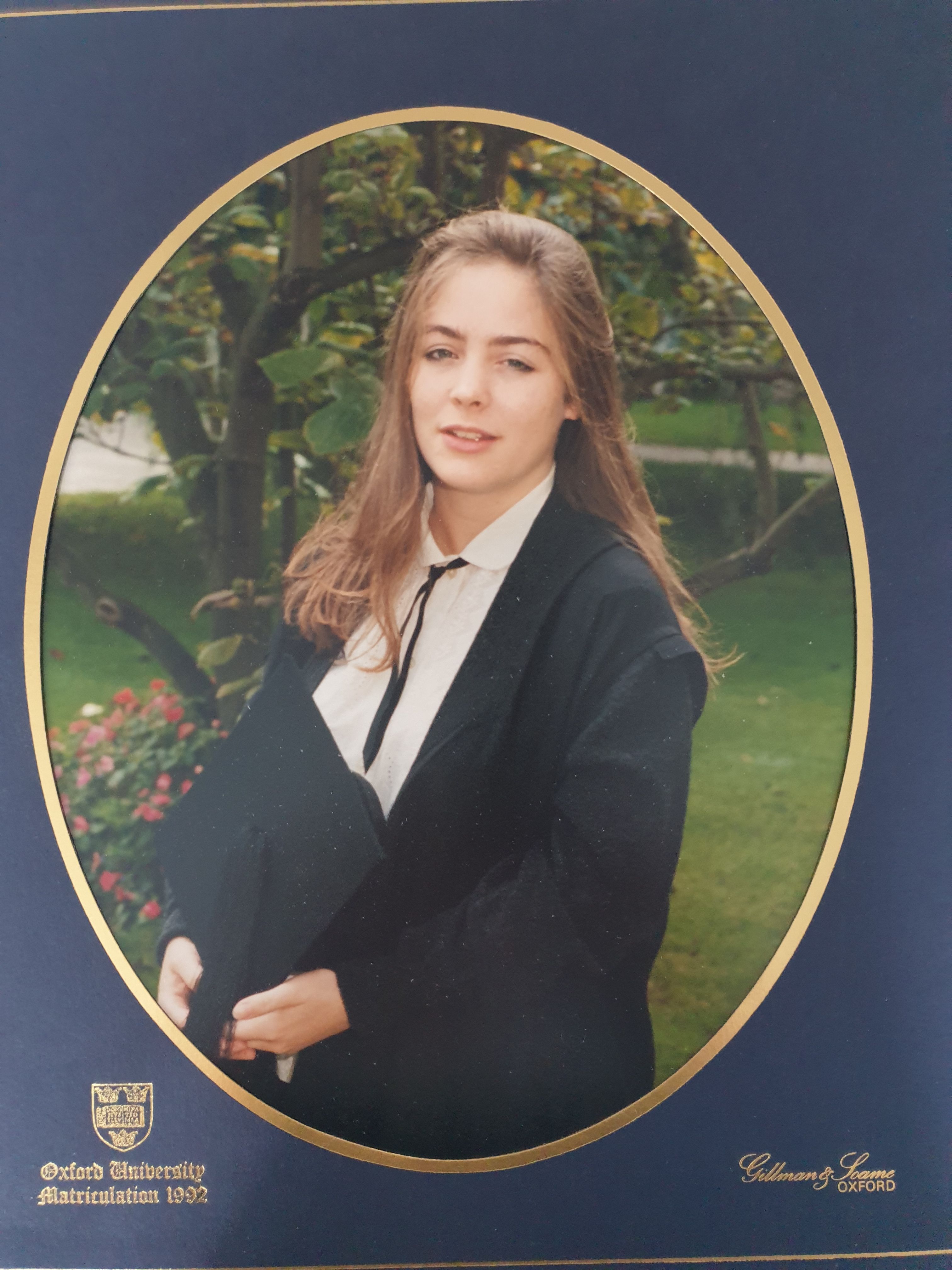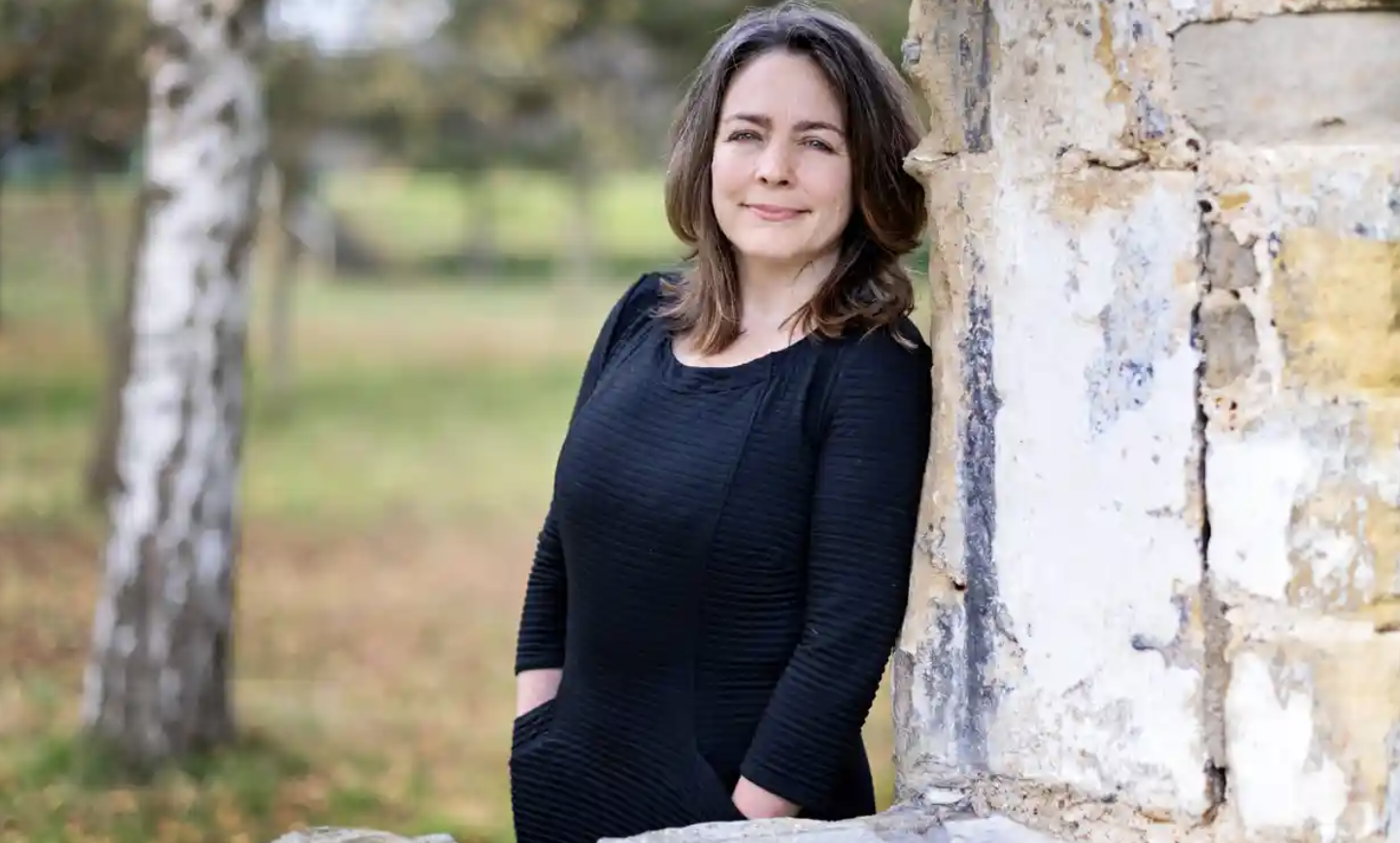Supporting the mental health of families

One in six children between seven and sixteen are affected by mental health problems, according to the latest National Health Service figures.
There are many opinions on this issue from inside and outside the medical world.
But one thing upon which all agree, is that services are stretched, particularly those for children and young people who are living with anxiety and depression.
Cathy Creswell, Oxford Psychology Professor and expert in mental health conditions among the young, is at the forefront of designing and delivering effective treatments for children and young people affected.
Professor Cathy Creswell, Associate Professor Polly Waite and Professor Belinda Lennox discuss childhood and adolescent anxiety in the 'Futuremakers: Brain and mental health' podcast series
A big part of her work involves trialing and delivering treatments which can be rolled out across the country.
The aim is to create much-needed help for the many young people and their families affected by mental health concerns in a timely manner – without sacrificing the quality.
So, no big deal.
One of Professor Creswell’s most successful treatment concepts, so far, came from a book she co-wrote with Lucy Willetts.
In it, they detail the steps and ways in which parents and carers can be the first line of support for children with mental health issues.
So successful has it been, Helping Your child with Fears and Worries – a self-help guide for Parents, is now in its second edition and has been deployed throughout the National Health Service.
‘The idea is to provide an effective way of supporting families. This reduces the time they might have to wait for support, but crucially it is clinically effective…It works,’ says Professor Creswell enthusiastically.
But how can families replace therapists? Should not there be some lying on couches? She laughs and explains:
‘Our work is all about using talking therapies, but putting them into practice in everyday lives… there is no lying on couches.’

What the good-natured Professor Creswell and her team do, is carry out rigorous trials of treatments, full-blown scientifically-based randomised control trials, to establish effective ways of helping children with mental health issues.
‘We need to make sure treatments work. These trials ensure the treatments are effective and have benefits. They need to take less time to access, without compromising on outcomes.’
Professor Creswell recognises families are busy and may feel under pressure, if they feel they are being left to manage such treatment so her approach involves flexible support from a trained professional.
Parents can be particularly helpful, she says, in terms of helping younger, primary aged children, ‘But we do not just hand over treatment to them and expect them to get on with it. Therapist support really helps - even if that is a 20-minute phone call each week.’
She says:
‘You can get really good outcomes this way…and many parents who have taken part in a trial tell us how it has been a great benefit to them.’
She adds, ‘They are often really glad they’ve done it. They feel empowered and much better equipped.’
To meet people where they are, Professor Creswell says, ‘We’re developing online treatments…which will be supplemented by weekly phone calls with a clinician.’
A trial of this innovative treatment is currently being randomly tested by clinicians around the country, with regular checks into its effectiveness. Some participants are working with the online tools, some are receiving more traditional treatments.
The hope is that, if successful, it will cut the amount of therapist time needed which can help cut waiting times.
Given the shortage of specialist therapists, Professor Creswell is very excited about the possibilities, although she cannot share results at this stage, she enthuses:
‘If we can get outcomes that are as good as traditional approaches, but with reduced therapist time, then this could make a huge difference to families and services.’

With mental health concerns affecting so many young people, it is essential to develop ways to help that are targeted, effective and can be delivered rapidly.
According to the professor, depression and anxiety are the key mental health issues affecting children of all ages. The youngest children in one of her trials are just four years old.
What is the cause of the increase?
Professor Creswell accepts that, in part, the reduction of stigma around mental health conditions may mean more people are willing to come forward, but, she says:
‘It does also look as though there has been a significant increase…and, with the development of good treatments, you don’t need just to put up with it now.’
Families may be struggling, and lack support, she says. Some want to know if their child has a mental health condition, or if this is something they will ‘grow out of’.
Professor Creswell explains the common signs to look out for.
For example, when it comes to anxiety the key thing is whether fears and worries are getting in the way of the child and/or family’s life, for example interfering with sleep, and causing problems with school or with peers.

Professor Cathy Creswell
Professor Cathy Creswell
‘Parents and carers need to trust their instincts,’ she says.
‘Parents are very good reporters when it comes to young children particularly.’
‘A lot of our focus is on finding out what is keeping a problematic situation going,’ says Professor Creswell.
‘So, in treatment we will be trying to understand what stands in the way of children having opportunities to learn how to overcome their problems.’
Professor Creswell explains:
‘It’s very common to try to avoid something, if you are fearful. We all do it.’
But when people are struggling with anxiety this can mean that they don’t necessarily get opportunities to test out their fears…it is important to think, what does this child need to learn, to help them overcome the fear? How can we create those opportunities?’

Professor Creswell has spent more than three decades studying children’s mental health.
She first came to Oxford more than 30 years ago, as an undergraduate.
She laughs as she recalls how a teacher at her South London Further Education college urged her to apply, ‘I didn’t know anyone who had been to Oxford. I came here for an interview, feeling very unsure and not expecting to get in.’

Professor Creswell during her time as an undergraduate at Oxford
Professor Creswell during her time as an undergraduate at Oxford
She was not sure she even wanted to get in and did not think she was an ‘Oxford type’. But, Professor Creswell says, ‘I had a really good time, it was lots of fun when I came up for the interview and it is a beautiful city. After that, I decided I really wanted to come…and I was offered a place.’
But she deferred her place and, before coming to Oxford, the clearly adventurous 18-year-old Cathy went to Japan for a year to teach English, ‘I didn’t think about what my parents thought about it…until my own son started talking about travelling.’
On her return, she was able take up her studies in Psychology and Philosophy (mostly Psychology) and even remained in Oxford after graduation, working in the then Radcliffe Infirmary.

Radcliffe Infirmary, former hospital in Oxford (closed 2007)
Radcliffe Infirmary, former hospital in Oxford (closed 2007)
It was her first role in clinical psychology and it started the young graduate on a career-long path.
From Oxford, she went to London to take a doctorate in clinical psychology at University College – and became a clinician. But she was not finished. Next, she took a PhD on childhood anxiety, also at UCL alongside a clinical role in Camden and Islington.
She followed this with 15 years at the University of Reading, working on evidence-based treatments for children’s mental health problems, before returning to Oxford and her current role.

The Covid pandemic took hold not long after her return to Oxford and she and her team swung into action immediately.
Within 'two weeks of the first lockdown’, they were studying the impact of the pandemic on children’s mental health.
‘We saw an increase in mental health problems in children and young people at times of peak restrictions...and our team are now working hard to establish what created risks for longer lasting problems in some children and young people.’
Professor Creswell spoke to The Guardian in 2020 about the findings of the Co-Space study. Photo: Linda Nylind/The Guardian
Professor Creswell spoke to The Guardian in 2020 about the findings of the Co-Space study. Photo: Linda Nylind/The Guardian
‘We’re digging into the data, looking at who has not ‘bounced back’,’ she says.
‘Throughout the pandemic our data has shown that particular problems have been felt by those with particular risk factors already – including where families were living on low incomes and also children and young people with special educational needs or neuro-divergence.’
Professor Cathy Creswell talks about the Co-SPACE study
Professor Creswell, clinician and researcher, has always worked in children’s mental health and is keen to encourage others.
As a clinical psychologist, she very much identifies as a ‘scientist-practitioner’ – so all bases are covered, ‘I have been able to keep in touch with clinical work and carry out trials.’
She is concerned about the number of staff working in children’s mental health services – and the lack of researchers looking into developing, evaluating and improving treatments.
She says:
‘There’s a huge amount to do and we need more people to do it. We need to inspire more people to get involved in mental health research and there is a place for a lot of different disciplines – not just psychologists.’
But she is hopeful, despite the current challenges. She says, ‘In England over the last five years, there have been 1,000 new practitioners, some in schools. Provision is growing. And more and more services are accepting self-referrals – which cuts waiting times.’
Professor Creswell sadly acknowledges there can be ‘very long waiting lists’. But she is extremely busy, and evidently determined, to try to do something about it.
She lists numerous projects, teams and networks working on treatments. Being back at Oxford is incredible, she says, before typically adding, ‘But I was really happy at Reading too.’
The key thing is clearly the work and the possibility of making a difference.
Not only does she sing the praises of her ‘fantastic colleagues and the many opportunities’ at Oxford, Professor Creswell and her fellow children’s mental health researchers from throughout the country are hopeful of changing the narrative – giving people the tools and providing the support that will really make a major difference.




